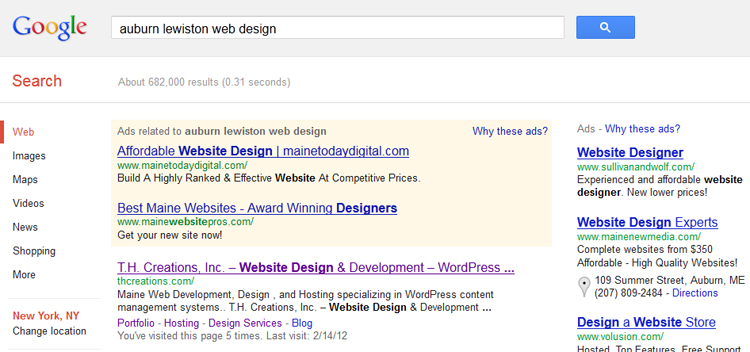We all want to know how to get good search engine results directing traffic to our websites, a.k.a search engine ranking. So how do the major search engines determine which websites to refer to? It is really quite simple, yet quite complicated at the same time. While it is fairly easy to affect the results your websites gets, it does take some knowledge and work to increase your desired results.

SEO: A history lesson…
In the old days, major search engines primarily relied on meta-tags containing keywords and keyword phrases. The search engine robots (computerized scripts) would go out to crawl the web and copy website meta-data and retrieve content, or text, from the websites pages and copy it back to their central database. The central data base was then searched by Search Engine users and the most relevant results, or matches were sent back to the user. While good in theory, this arrangement didn’t work out as well as hoped, because frankly it was too easy and too tempting for website owners, or developers to cheat or try to outsmart the robots.
People started adding tons of keywords and phrases to their meta-data tags that had nothing to do with the products, services, or information being offered. For example, people would add the most popular or trendy words they could think of in hopes of getting more website traffic. For example, words like sex, drugs, rock and roll, Nascar, apple pie, The Beatles and Chevrolet were added. More crafty developers would even add white text to a white page background to embed some of the same words to fool the SE robots. In response, the SE owners had to implement a more sophisticated plan, which included a variety of checks and balances. So what now?
Content is KING
Today, several factors are considered in determining which results will be offered back to the user. Keywords and keyword phrases do not hold the same weight as in the past. Here is what Google has to say about it:
Google does no longer use the meta keyword and they confirm this in their Webmaster Central Blog: Google does not use the keywords meta tag in web ranking. Some search engines don’t use the meta tag information any more because many people abused it. In fact, meta tags may not represent the content of your site, but, it still doesn’t hurt your status with search engines if you make use of these little bits of information, and do so truthfully.
So what do we need to do?
- Develop content using a variety of words and phrase that include our key areas, that will cater to your desired results.
- Have a domain name, or generic domain name(s) that contain your keywords.
- Use descriptive page titles that include your primary keywords.
- Evaluate your results by looking at your website stats and add to, or change, content accordingly.
 This top 10 list contains questions that should be considered for any website project! From identifying your primary target market and regional competition area to SEO and ongoing upkeep and maintenance, this article may spur some new ideas, or just get you thinking about how well your website works for your business. Does your website work for you?
This top 10 list contains questions that should be considered for any website project! From identifying your primary target market and regional competition area to SEO and ongoing upkeep and maintenance, this article may spur some new ideas, or just get you thinking about how well your website works for your business. Does your website work for you?
 Are you looking to trim some fat out of your marketing budget?
Are you looking to trim some fat out of your marketing budget?